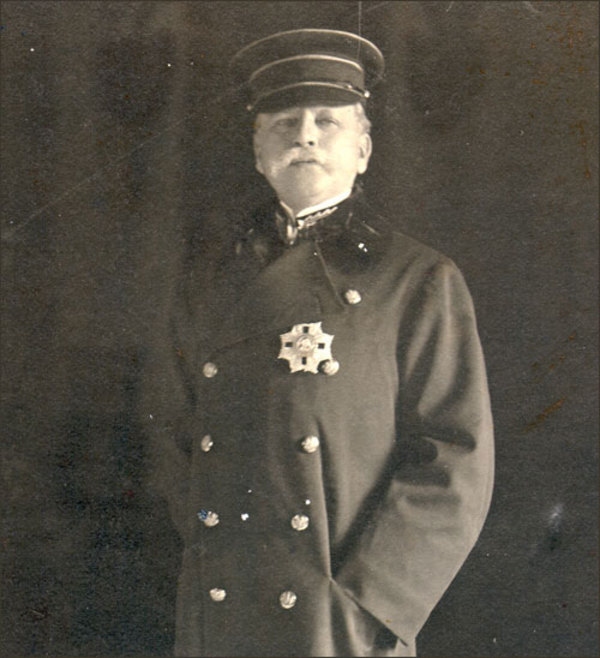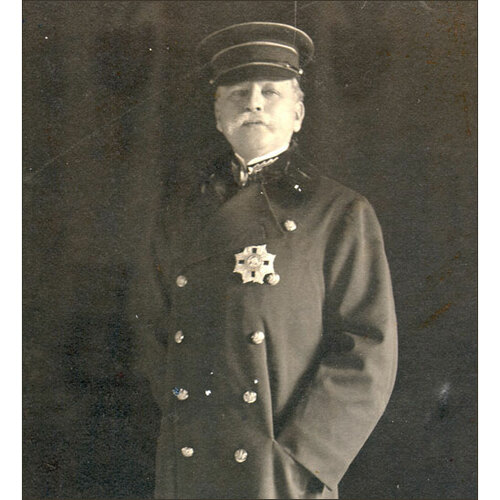
Source: Link
BOYLE, Sir CHARLES CAVENDISH, governor of Newfoundland; b. 29 May 1849 in Bridgetown, Barbados, second of the two sons of Captain Cavendish Spencer Boyle and Rose Susan Alexander; m. 9 July 1914 Louise Judith Sassoon (d. 1964) in Brighton, England; they had no children; d. 17 Sept. 1916 in London, England.
Educated at the Charterhouse in London, Cavendish Boyle trained as a lawyer before joining the colonial service. His first post, in 1879, was as a stipendiary magistrate in Dominica. In 1882 he was appointed colonial secretary of Bermuda, and he subsequently served in the same capacity at Gibraltar (1885) and in British Guiana (1894). In 1901 Sir Cavendish – he had received a kcmg four years earlier – was promoted to the governorship of Newfoundland.
Boyle proved to be an active, popular, and sociable governor, whose receptions were described by newspaper editor Alexander A. Parsons* as “charmingly attractive and enjoyable.” His reputation lived long after his departure for two reasons. First, he presented a silver trophy to the St John’s Hockey Association in 1904 – the Boyle Challenge Cup – which was competed for until 1971. Secondly, his 1902 ode “Newfoundland” was immediately popular and, in a musical setting by his schoolmate Sir Charles Hubert Hastings Parry, became in time Newfoundland’s national anthem. It is sung to this day. These contributions illustrate Boyle’s genuine interest in and involvement with the affairs of the colony, as does his support of such organizations as the boys’ brigades and the Royal Naval Reserve.
Boyle’s relations with the premier, Sir Robert Bond*, were generally cordial. His assessment of Bond’s difficult personality was objective, but the fact that they were both bachelors seems to have contributed to a friendship which was to prove of diplomatic and political importance. There is no doubt that Boyle was able to assist constructively in the early stages of the negotiations between the Newfoundland government and the Harmsworth interests that resulted in the construction of a large newsprint mill at Grand Falls. More important, in 1904 Boyle played a significant role in persuading Bond to accept the draft clauses of the Entente Cordiale which affected Newfoundland. Boyle reported that he had “talked myself hoarse in urging the advantages of the arrangement” and then, understanding Bond’s vanity, had steered it through the Executive Council by allowing it to appear as the premier’s achievement. Allowing for Boyle’s possible exaggeration of his role, there is no doubt that a governor whom Bond did not like and trust would have had great difficulty in obtaining consent to an agreement which, though it severely diminished French coastal fishing rights, did not go as far as many Newfoundlanders wished. In this instance, as with his handling of the 1902 sealers’ strike [see Simeon Kelloway*], Boyle’s characteristic tact stood him in good stead. From December 1901 he had also supported the efforts of Guglielmo Marconi to establish wireless communication between Newfoundland and England.
Though there were times when Boyle, with his experience of crown colonies, became impatient with the limitations placed on a governor in a colony with responsible government, the Colonial Office had reason to be grateful for his constructive term of service. In 1904 he was promoted governor of Mauritius, where he remained until his retirement in 1911.
PRO, CO 194/254. Evening Telegram (St John’s), 8 March 1902. F. W. Graham, “We love thee, Newfoundland”: biography of Sir Cavendish Boyle,
Cite This Article
James K. Hiller, “BOYLE, Sir CHARLES CAVENDISH,” in Dictionary of Canadian Biography, vol. 14, University of Toronto/Université Laval, 2003–, accessed April 1, 2025, https://www.biographi.ca/en/bio/boyle_charles_cavendish_14E.html.
The citation above shows the format for footnotes and endnotes according to the Chicago manual of style (16th edition). Information to be used in other citation formats:
| Permalink: | https://www.biographi.ca/en/bio/boyle_charles_cavendish_14E.html |
| Author of Article: | James K. Hiller |
| Title of Article: | BOYLE, Sir CHARLES CAVENDISH |
| Publication Name: | Dictionary of Canadian Biography, vol. 14 |
| Publisher: | University of Toronto/Université Laval |
| Year of revision: | 1998 |
| Access Date: | April 1, 2025 |



